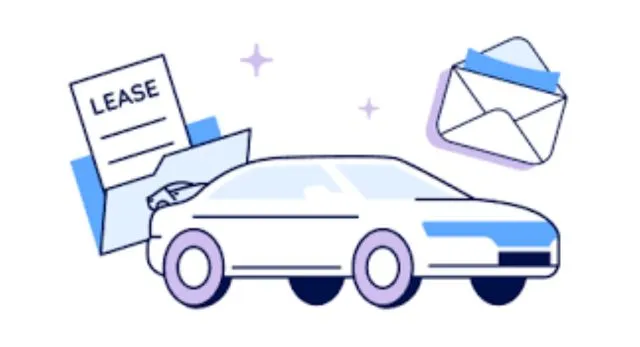Signing a car lease is a significant commitment, as it requires you to drive a vehicle for a specific number of miles and months. Understanding the process and being aware of common leasing mistakes can help you decide if leasing is the right choice for you and ensure you get the best deal.
Our Guides Auto Team will walk you through what car leasing involves, key terms to know, common mistakes to avoid, and the pros and cons of leasing. If you’re considering leasing a vehicle, we recommend shopping around and researching your options. Many top auto loan providers for 2023 also offer lease loan options.
How Does Leasing a Car Work?
Leasing a car is akin to renting a vehicle for a fixed period, typically 2-4 years. You pay a monthly fee to use the car, which is generally lower than loan payments for purchasing the same car. At the end of the lease term, you return the car to the dealership or leasing company.
Steps Involved:
- Choose a Car: Select the car you wish to lease.
- Negotiate Terms: Discuss the lease terms, including monthly payments, mileage limits, and duration.
- Initial Payment: Make a down payment, which can include a security deposit, first month’s payment, and other fees.
- Monthly Payments: Pay the agreed-upon amount each month.
- End of Lease: At the end of the lease, you can either return the car, purchase it at a predetermined price, or lease a new vehicle.
How To Lease a Car
- Research and Select a Car: Determine the make and model that fits your needs and budget.
- Visit Dealerships: Visit multiple dealerships to compare offers.
- Understand Lease Terms: Pay attention to the length of the lease, mileage limits, and any additional fees.
- Negotiate: Don’t hesitate to negotiate the monthly payment, down payment, and other terms.
- Review the Lease Agreement: Thoroughly review the lease agreement before signing.
- Insurance: Ensure you have the required insurance coverage.
- Drive Away: Once all paperwork is completed, you can drive away in your leased car.
Leasing a Car: Important Terms to Know
- Capitalized Cost (Cap Cost): The price of the car being leased.
- Residual Value: The estimated value of the car at the end of the lease term.
- Money Factor: The interest rate on the lease, often expressed as a small decimal.
- Mileage Limit: The maximum number of miles you can drive per year without incurring additional fees.
- Depreciation: The amount by which the car’s value decreases over the lease term.
- Disposition Fee: A fee charged at the end of the lease for returning the car.
- Acquisition Fee: A fee charged by the leasing company to arrange the lease.
Is Leasing a Car a Good Idea?
Pros:
- Lower monthly payments compared to buying.
- Access to new cars more frequently.
- Maintenance is often covered under warranty.
- No need to worry about selling the car.
Cons:
- Mileage restrictions can lead to additional fees.
- You don’t own the car at the end of the lease.
- Early termination fees can be high.
- Long-term cost can be higher than buying if you keep leasing.
Car Leasing Mistakes To Avoid
- Not Negotiating: Always negotiate the terms of your lease.
- Ignoring the Mileage Limit: Be realistic about your driving habits to avoid excess mileage fees.
- Overlooking Fees: Pay attention to all fees, including acquisition and disposition fees.
- Skipping the Fine Print: Read the lease agreement carefully to understand all terms and conditions.
- Neglecting Maintenance: Failure to maintain the car can result in extra charges at the end of the lease.
ALSO READ:
Lease a Car: The Bottom Line
Leasing a car can be a smart choice for those who prefer lower monthly payments and the ability to drive a new car every few years. However, it’s essential to understand the terms, fees, and limitations involved. Carefully evaluate your driving habits, financial situation, and future needs before deciding to lease.
Leasing a Car: FAQ
Q: Can I buy the car at the end of the lease?
A: Yes, most leases offer a purchase option at the end of the term.
Q: What happens if I exceed the mileage limit?
A: You will be charged a fee for each mile over the limit, which can add up quickly.
Q: Is leasing better than buying?
A: It depends on your personal situation and preferences. Leasing offers lower monthly payments and access to new cars, but buying builds equity over time.
Q: Can I terminate my lease early?
A: Yes, but early termination usually comes with significant penalties.
Q: Are maintenance and repairs included in the lease?
A: Routine maintenance may be covered, but you are generally responsible for any damage or excessive wear and tear.


